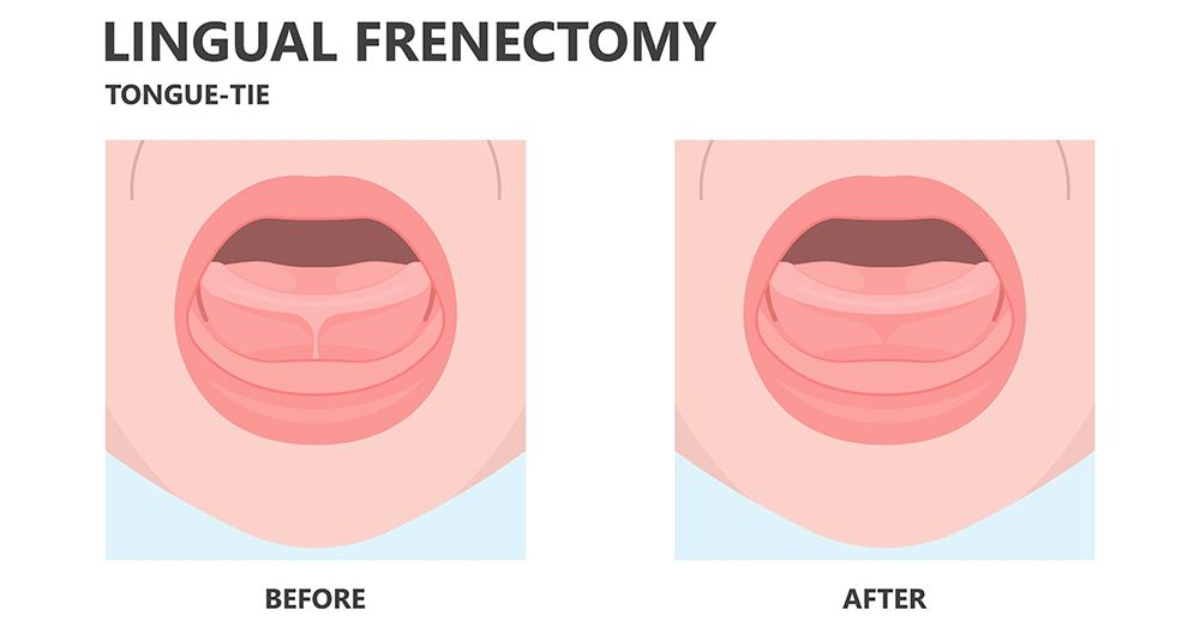Call Us Today 817-737-7668

Frenectomy is a minor oral surgery. This treatment eliminates or alters the frenum within the mouth. A frenum is a tiny flap of tissue joining the lips, cheeks, or tongue to the gums.
This blog post will discuss why a frenectomy is required and share frequent indications for the surgery. You must know when to have this treatment done. It will help keep the mouth healthy and maximize overall comfort.
A frenectomy can be greatly helpful when adequately conducted, whether it’s because of speech problems, orthodontic issues, or dental hygiene issues.
What is a Frenectomy?
A frenectomy entails surgically excising or relocating the frenum to enhance oral function. The procedure is aimed at various forms of frena, such as:
Labial Frenum: It links the inside of the upper or lower lip to the gum.
Lingual Frenum: This attaches the bottom of the tongue to the bottom of the mouth (most often linked to tongue-tie).
Buccal Frenum: It attaches the cheeks to the gums.
The frenum helps stabilize the cheeks, tongue, and lips. Yet, when too tight, too short, or in the wrong position, it leads to speech, dental growth, and oral health issues. A frenectomy successfully corrects these problems, as it releases the tension that the frenum creates.
Why is a Frenectomy Performed?
Frenectomy surgery enhances the functional and cosmetic properties of oral hygiene. Functionally, frenectomy better enables speech, eating, and dental hygiene. In addition, this treatment removes the constraints of a frenum that is too small or constricted so that lips or tongue have greater freedom to move.
A frenectomy can repair a gap between the front teeth or diastema. It also stabilizes dentures and aids orthodontic treatment by avoiding relapse. Patients tend to feel more comfortable. Moreover, they have less gum irritation and better oral hygiene after a frenectomy. The procedure is straightforward and minimally invasive. It provides long-term results that benefit overall dental health.
Common Indications for a Frenectomy
Ankyloglossia (Tongue-Tie): A tight frenum linguae limits tongue movement. It affects speech, eating, and oral hygiene. Babies with tongue-tie may have difficulty sucking. A frenectomy offers instantaneous relief. Moreover, it facilitates greater mobility.
Diastema (Gap Between Teeth): Excessive labial frenum development can cause a gap between the central front teeth. Generally, a frenectomy is included with orthodontic treatment. As a result, it eliminates the gap and preserves dental alignment.
Denture Fit Problems: A frenum that is too long and close to the gumline may hinder denture stability. This therapy has the ability to increase comfort and stop the dentures from being displaced while eating or speaking.
Orthodontic Requirements: When orthodontic treatment is being undertaken, a tight frenum will push the teeth back to their original position. This treatment is capable of preventing relapse and guarantees the long-term success of the treatment.
Periodontal Issues: If a frenum tugs on the gums, it may lead to gum recession. It can reveal the roots of the teeth. This makes it more likely to develop periodontal problems and more challenging to practice oral hygiene. A frenectomy decreases tension and encourages healthier gums.
When is a Frenectomy Necessary?
Medical and dental professionals suggest this therapy in the event the frenum hampers oral functionality or comfort. A frenectomy improves breastfeeding for tongue-tied babies.
Speech facilitation and averting orthodontic problems assist children. In adults, the treatment serves for denture retention, periodontal considerations, or during endodontics therapy. Visit an endodontic professional or a dentist for a correct and proper treatment to produce optimal results.
Frenectomy provides enormous advantages for speech, dental alignment, and oral comfort. Early treatment avoids complications and helps maintain long-term oral health. A dental or endodontist can assess if this therapy is required. Arrange a consultation with our professionals to discuss your choices and improve your quality of life with better oral function.





